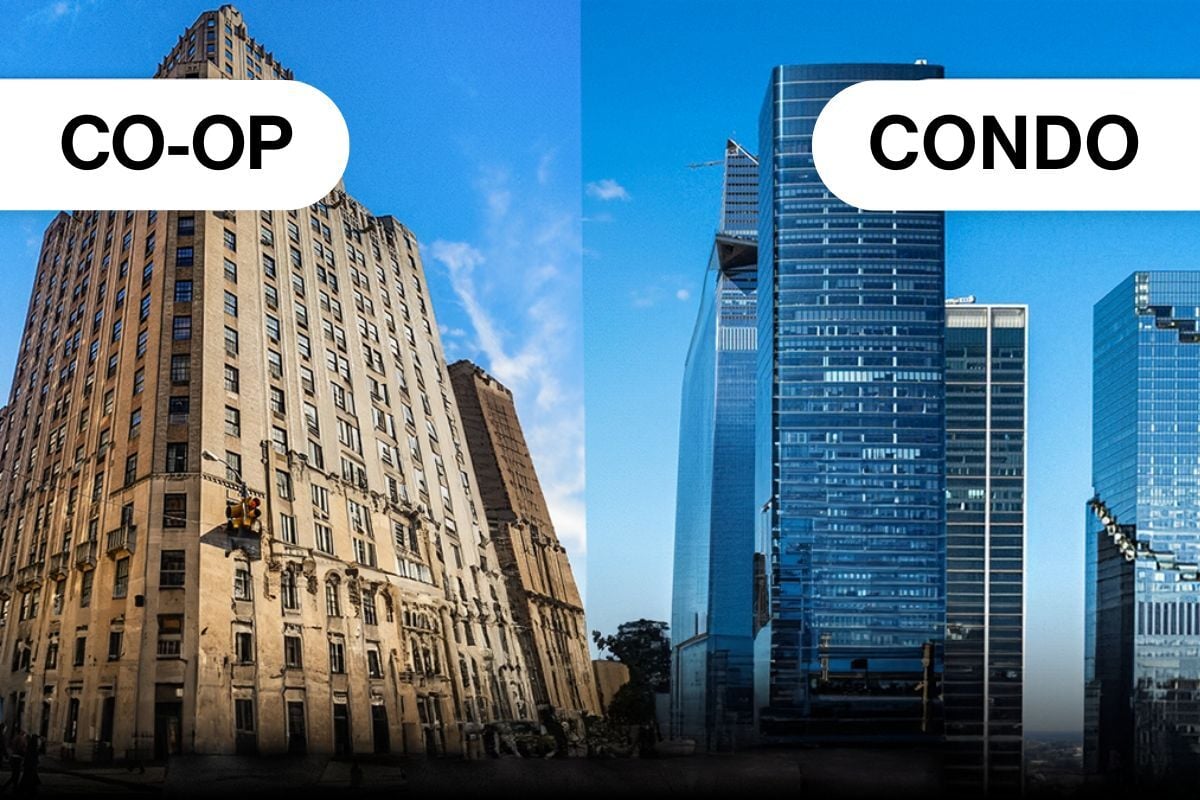Don't Buy a Condo with These 6 Issues
Purchasing a condo in NYC is a major investment and brings additional complexities you wouldn't normally encounter when buying a single-family home. If it's your first time buying a condo, you may not be aware of all the different issues to consider as they aren't always immediately obvious. Buying a condo is a good investment if you do your research and know what you're getting. However, they can quickly become a money pit if you overlook certain warning signs. So, to help make your buying decisions easier, here are 6 red flags to consider when buying a condo.

Perpetual Assessments
When buying a condo, you should carefully examine any assessment fees. A condo assessment is a fee owners pay to finance unexpected repairs and upgrades that aren't covered by the normal maintenance fees.
While some assessments are reasonable and a standard part of owning a condo, if they are excessive and ongoing, it can impact the long-term outlook of the investment and limit your ability to obtain financing. One of the biggest pros and cons of buying a condo is that you aren't responsible for handling all the maintenance yourself. However, you do have to deal with the decisions of the board, who may not always make the best choices.
According to Mukul Lalchandani, founder of Undivided, "I once had a client who was about to put an offer on a condo on Norfolk Street in the Lower East Side. It was an amazing location with concrete ceilings, and the prices seemed too good to be true. But there was one major catch; an $80,000 assessment. The board did renovations that did not add value to the building. It ate up all the reserve funds and put the building in financial ruin, which had a major impact on the resale value of the homes. As a result, no bank would finance that building."
So, one of the questions to ask before buying a condo is whether or not there are any major assessments you'll be expected to pay.
Awkward Layouts
Awkward layouts are another issue to look for when buying a condo. You should consider not only how you will use the space but also how it will appeal to future buyers when you decide to sell. Issues such as unusable square footage or awkward hallways, angled walls, or columns that limit the space's usage are all major red flags. Another thing to look out for is one large bedroom that could have easily been made into separate rooms.
A bad layout not only impacts the usable space, it can also affect the light exposure or ventilation, creating an unpleasant environment inside the home. Even if you think you can live with it, others may not feel the same way. Larger units with a smart layout tend to appeal to a wider range of home shoppers, while those with a less-than-ideal configuration may only appeal to a select few, limiting your resale options. So, something to know before buying a condo is what makes an ideal layout.

Lot Line Windows
Lot-line windows are another serious red flag. In cities like New York, where real estate is very precious, it's not uncommon to find buildings constructed right up to the edge of the property line. Developers do this intentionally to take advantage of all the available square footage. Any windows found in walls built right up alongside the property line are known as lot-line windows.
While lot-line windows may not appear to be a big deal upon first glance, they can become a major headache down the line. Even if the windows are currently unobstructed, if anyone decides to build vertically in the neighboring space, the lot-line windows will need to be filled in. Not only would you be staring at a brick wall, but if there's an open space in between the buildings, it can present a fire hazard.
Depending on the window's location, this can have drastic impacts on the livability and resale value of the home. It can prevent natural light from getting in, creating a darker atmosphere inside the residence. Not to mention, a space must have at least one permanent window to be considered a legal bedroom, which means a lot of line windows do not qualify, even if it's currently operational.
So keep an eye out for lot line windows if you plan on buying a condo in NYC or any major city. It's best to try to avoid them altogether. But if you can't, at least make sure you know their existence and what might happen if they need to be filled in.
Ground Floor Units
When buying a condo for the first time, it's often wise to avoid ground-floor units. Although they are often cheaper than those on higher floors, that's usually for a reason. Living on the ground floor often creates privacy concerns, as people on the street may be able to see into the unit. Ground-floor apartments are also more likely to be burgled, as intruders have easier access compared to upper-level units.
There's also an added risk of flooding if there is ever a serious storm, and being closer to the ground means you're more vulnerable to rodents and pests. The lower prices can also be negative in the long term. While condos on the ground floor may be cheaper to purchase, that also means they may be harder to resell. So, if you're looking for advice on buying a condo, avoid the ground-floor units whenever possible.

Restaurant Below
It's also not a good idea to buy a condo above a restaurant. While the thought of waking up to the smell of fresh cooking may sound appealing at first, the reality is usually much different.
Restaurants can bring a ton of noise and large crowds that can cause a disturbance. They also produce strange smells that will seep into your apartment. Restaurants tend to attract rats and other vermin that may find their way into your home when they can't find any scraps to nibble on. For all those reasons, it may also be more challenging to find a buyer when you're ready to sell. So, while living above a restaurant may sound appealing in theory, in most cases, it isn't worth the hassle.
Non-Warrantable Financing
First-time condo buyers should also proceed with caution if a residence is labeled "non-warrantable". "Non-warrantable" means that the unit does not meet the conventional guidelines set by the government-sponsored entities (GSE) Fannie Mae and Freddie Mac. While that doesn't necessarily mean there's anything wrong with the unit itself; there may be other problems within the building that make it too risky for the GSE to back. Individual mortgage lenders often rely on the GSEs purchasing their mortgage debt in bulk to offset some of their own risk. So it will be more difficult to obtain traditional financing for a non-warrantable condo.
Common reasons why a condo may be non-warrantable:
- The property owners or developers are currently in litigation
- The construction is still incomplete
- Non-owners occupy a large number of the units in the building
- One person or business entity owns more than 10% of the units in the building
- The developer hasn't turned over control to the owners
You'll often find non-warrantable condos in mixed-use buildings. They're also very common in new developments that are still being completed. As a result, there are pros and cons to condos that are non-warrantable. It may be frustrating to find the perfect property that appears to have nothing wrong with it, only to discover that you can't use a traditional mortgage because of an issue with the building.
You can always look into non-traditional financing methods if you have your heart set on that particular unit. However, this does bring financial risks, and you may be stuck with a higher interest rate. The process of buying a non-warrantable condo can be much more complex and challenging to navigate, especially for first-time buyers. So, in general, they're best to avoid.
Is Buying a Condo Worth It?
Buying a condo is a good idea for anyone who wants the versatility and convenience of an apartment with all the benefits of homeownership. However, like any major purchase, it's a big responsibility, and you must do the proper due diligence to avoid picking a lemon. Use these tips for buying a condominium to help you spot any red flags and ensure you find the perfect home that will also be a good long-term investment.
Buying a home in New York City? Become a member of our New Build Club and get priority access to a massive database of brand-new builds before anyone else. As the authority in new builds, we understand the importance of early access. As a member, we’ll not only show you the best new builds available before they come to market, but we’ll also show you every unit in the building, access floor plans, help you compare prices, and more. Finding your dream home has never been easier. Contact us today to get started.
Ready to Get Started?
Here's what you'll get:
✓ Curated Listings
We handpick properties that fit you, saving you time by showing homes that match what you want.
✓ Luxury Amenities
We highlight top-tier amenities so your new home delivers the prestige and quality you expect.
✓ Market insights
We provide detailed market comps and insights to guide your decision-making with confidence and clarity.


